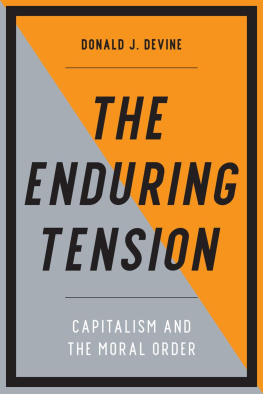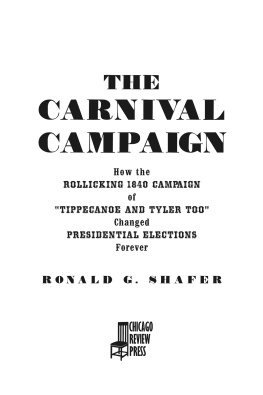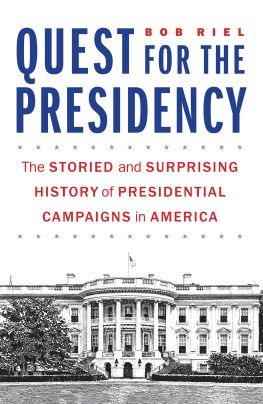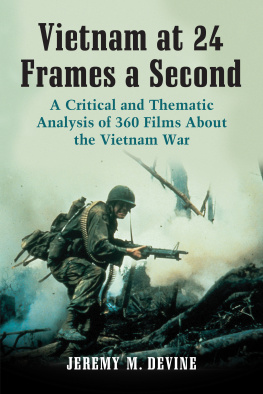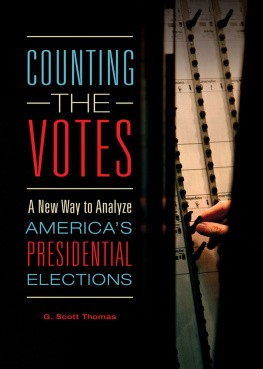2013 The University of North Carolina Press
All rights reserved
Set in Miller by codeMantra
Manufactured in the United States of America
The paper in this book meets the guidelines for permanence and durability of the Committee on Production Guidelines for Book Longevity of the Council on Library Resources. The University of North Carolina Press has been a member of the Green Press Initiative since 2003.
Library of Congress Cataloging-in-Publication Data
Devine, Thomas W.
Henry Wallaces 1948 presidential campaign and the future of postwar liberalism / Thomas W. Devine. First edition.
pages cm
Includes bibliographical references and index.
ISBN 9781469602035 (hardback)
1. Wallace, Henry A. (Henry Agard), 18881965. 2. Political campaigns United States. 3. PresidentsUnited StatesElection1948 4. United StatesPolitics and government19451953. I. Title.
E 748. W 23 D 48 2013
973.918dc23
2012046984
17 16 15 14 13 5 4 3 2 1
An earlier version of chapter 1 was published as The Communists, Henry Wallace, and the Progressive Party of 1948, Continuity: A Journal of History, no. 26 (Spring 2003): 3379. Used with permission.
CONTENTS
The Communists and the Origins of the Progressive Party
Launching Gideons Army
Early Victories and Mounting Attacks
Henry Wallaces Critique of Containment
Lead-Up to the National Convention and the Crafting of a Third Party Platform
The Founding Convention of the Progressive Party
Post-Convention Fallout and Dropouts
Youth, Labor, Spies, and the Post-Convention Campaign
Gideons Army Invades Dixie
Denouement
PREFACE
In the election of 1948, Henry A. Wallace set out to challenge conventional wisdom. At a time when both major parties supported President Harry Trumans foreign policy, Wallace claimed that militarists and international bankers had taken over the government and were deliberately leading the nation down the road to war. Though public opinion polls showed that most Americans viewed the Marshall Plan as a humanitarian aid program that would produce stability and economic recovery in Europe, he denounced it as a reactionary Wall Street plot designed to corner foreign markets, suppress civil liberties, and split the world into two warring camps. At a time when the vast majority of the population feared the spread of communism and considered the Soviet Union the primary impediment to world peace, Wallace insisted that domestic fascism and American imperialism posed the greater threat. American monopolists, he maintained, had manufactured the Cold War to divert attention from their global grab for power and profits. As the government took steps to clamp down on the activities of the American Communist Party, Wallace denounced the Red Scare and welcomed Communists into his campaign, arguing that it would violate the principles of Jeffersonian democracy to turn them away. And, as southern segregationists split from the Democratic Party rather than accept a platform that supported racial equality for African Americans, Wallace journeyed into the heart of Dixie and proclaimed that segregation was sin.
Inevitably, the Progressive nominee drew criticism for his unorthodox beliefs. Throughout 1948, many journalists and politicians dismissed Wallace as a bitter and confused man, full of contempt for President Truman and easily manipulated by the cynical agents of the Kremlin who surrounded him. Cartoonists portrayed him as marionette, mindlessly delivering the latest Moscow line while Stalin pulled the strings. Many of the nations newspaper editors assailed him as an appeaser, and even a traitor, who preached the insidious doctrine of peace at any price. Conservative columnists ridiculed the Iowa native as a corn-fed mystic, the unbalanced author of the bizarre Guru letters, and as an eccentric who had a long history of consorting with charlatans and falling hard for their save-the-world schemes. Southerners made Wallace the target of eggs, tomatoes, and a torrent of ugly invective, while many northern liberals considered him the unwitting ally of reaction.
Less impassioned critics viewed Wallace as a well-intentioned but astonishingly naive figure, a utopian who was more comfortable dreaming about the future than confronting the problems of the present. The 1948 presidential campaign, they believed, had brought out the worst in him. His crusading fervor hardened into dogmatic intolerance; his always emotionally charged oratory grew reckless and strident; his populist suspicion of concentrated economic power devolved into a dubious devil theory of Wall Street conspirators plotting to destroy civilization. And, most notably, his tendency to reduce human history into a zero-sum struggle between good and evil kept him from comprehending the moral ambiguities that would characterize international relations in the postwar eraa shortcoming, it should be noted, that Wallace shared with many of the American leaders he criticized.
Wallaces admirers saw an entirely different person. To them, he was the rightful heir to Franklin D. Roosevelt and the New Deal, a man of principle who would have been president if not for the meddling of a small group of party bosses. Wallace was the peoples advocate who would never have heeded the counsel of international financiers and warmongers; the fighting liberal who would have scorned compromise and courageously advanced the march of progressivism; the peacemaker who would have reached an accord with Stalin rather than throwing him on the defensive with get tough posturing; the world leader who would have ensured that a democratic revolution, and not a Cold War, emerged from the carnage of World War II. In short, Wallace was the symbol of all that might have been had not the forces of reaction so cruelly betrayed their postwar dreams.
In 1948, however, Wallace elicited not only wistful regret for the path not taken but also hope for a better future. Progressives found his glittering promises of peace and abundance infinitely more attractive than the grim talk of Soviet aggression and communist totalitarianism emanating from the Truman White House. At the beginning of the campaign, his supporters expressed confidence that regardless of who won the presidency in November, they were building a peoples party that would eventually achieve the objectives Wallace had laid out. Their self-styled Gideons Army, small but determined, would undercut the entrenched power of Wall Street and the military that they believed dominated the two major parties. Once the voters returned progressives to positions of power, the Cold War would thaw and Wallaces heralded Century of the Common Man could at last commence.
These men and women had supported the most advanced aspects of Roosevelts New Deal, but they considered themselves independent liberals, not loyal Democrats. Most were well-educated, middle-class professionals who became active in politics to fight on behalf of the common man. Though many expressed a vague preference for some form of social democracy, they rejected the anticommunism of Norman Thomass Socialist Party. Indeed, anticommunism of any kind was anathema to them, for they were convinced it undermined progressive unity and thereby strengthened the reactionaries. Unlike many Popular Front liberals who had also embraced a philosophy of no enemies to the left during the 1930s, however, the Wallaceites of the postwar period were not uncritical admirers of either the Soviet Union or the American Communists. Their concern was not revolution but war. Accordingly, they tended to avoid discussions concerning conditions within the Soviet Union and emphasized instead the need to allay Soviet insecurities by urging Washington to pursue friendly relations with Moscow. Anti-Soviet criticism, they reasoned, could only provoke further insecurity and increase the chances of war. Similarly, they did not esteem the motives and methods of the CPUSA, but neither did they closely scrutinize them. Acknowledging that Communist rhetoric occasionally went too far, postwar Popular Front liberals nonetheless accepted party members as allies so long as the Communists expressed themselves willing to help advance the progressive agenda. Otherwise, these independent liberals preferred not to know exactly what the Communists stood for, how they operated within their own party or within progressive organizations, or even who among the progressives were in fact concealed Communists. Pursuing such lines of inquiry amounted to red-baiting, which was a tool of reaction. In this sense, Wallace supporters were not fellow travelers. The latter, though not officially members of the Communist Party, understood and knowingly advanced Communist arguments, submitted themselves to Party discipline, and kept Party secretseven if, as some wags put it at the time, they were cheating the Party of its dues. The Wallaceites deeply resented such a moniker, for it made them creatures of the Party and denied them the political independence on which they prided themselves. In 1946 and 1947, liberals of this persuasion saw in Wallace one of the few remaining progressive politicians who shared their values and spoke out forcefully in their defense. Their initial support for, and in many cases ultimate disillusionment with Henry Wallace the man, constitutes part of postwar liberalisms broader story.


